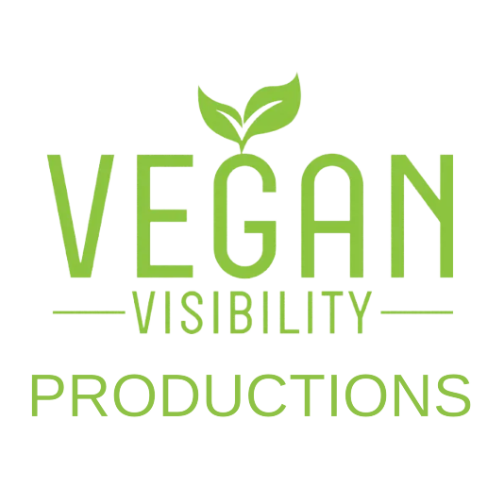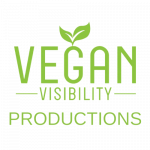 As I scrolled through TikTok recently, I stumbled upon a video that left me in disbelief. In the clip, a man angrily showcased his recent grocery haul, which included five bags of chips, a frozen pizza, and a handful of other ultra processed items, all while complaining about the cost.
As I scrolled through TikTok recently, I stumbled upon a video that left me in disbelief. In the clip, a man angrily showcased his recent grocery haul, which included five bags of chips, a frozen pizza, and a handful of other ultra processed items, all while complaining about the cost.
What grabbed my attention wasn’t just the 10 or so items themselves, but the price tag attached to them—a staggering $120. The man said this was about two days of meals. Likely, the chips alone were at least $30 – $40.
As I continued to scroll through the comments, it became apparent that I wasn’t alone in my shock. People from all walks of life chimed in, sharing their own experiences of facing exorbitant food costs.
The Unavoidable Truth: Inflation Hits Hard
The reality is undeniable: prices are spiraling out of control. From housing to healthcare, the cost of living seems to be perpetually on the rise. Nowhere is this more evident than in the realm of grocery shopping.
With each trip to the store, consumers are greeted with higher prices and shrinking purchasing power. Inflation has become an ever-present specter, casting a shadow over the wallets of individuals and families alike.
A Choice to Make: Convenience vs. Cost and Health
Amidst this inflationary storm, consumers are faced with a choice: continue to grumble about rising prices while shelling out for ultra-processed foods or take proactive steps to not only lower their grocery costs but also improve their health. It’s a choice that demands consideration and action—a choice between short-term convenience and long-term well-being.
storm, consumers are faced with a choice: continue to grumble about rising prices while shelling out for ultra-processed foods or take proactive steps to not only lower their grocery costs but also improve their health. It’s a choice that demands consideration and action—a choice between short-term convenience and long-term well-being.
The Reality Check: Embracing Budgeting for Nutritious Meals
There are some who say they don’t want to have to budget. You can “want” that until the cows come home, but the reality is, inflation has dramatically increased our food costs. We can dig our heels in and say, “It ain’t fair,” or we can look for ways to lower our food costs while cooking highly nutritious meals.
Seeking Solutions: Lowering Costs, Boosting Health
Thankfully, there are solutions at hand for those willing to seek them out. By prioritizing whole, unprocessed foods and embracing mindful shopping habits, individuals can navigate the challenges of inflation while simultaneously improving their health and financial well-being.
It’s a journey that begins with a shift in mindset—a recognition that the true cost of food extends far beyond the price tag on the shelf.
The Impact of Eating Ultra-Processed (Ultra Expensive) Foods
 While discussing the costs of groceries, it’s crucial not to overlook the additional expenses associated with the foods commonly found in shopping carts. To fully grasp the true cost of our diets, we must consider both short-term and long-term implications.
While discussing the costs of groceries, it’s crucial not to overlook the additional expenses associated with the foods commonly found in shopping carts. To fully grasp the true cost of our diets, we must consider both short-term and long-term implications.
Indeed, consuming ultra-processed foods carries significant consequences for our health:
Nutrient Deficiency: Ultra-processed foods are usually stripped of essential nutrients during processing and may be fortified with synthetic additives to compensate. As a result, they tend to be low in vitamins, minerals, fiber, and other beneficial nutrients essential for maintaining overall health.
Weight Gain and Obesity: Ultra-processed foods are typically high in calories, unhealthy fats, sugars, and refined carbohydrates, which can contribute to weight gain and obesity when consumed in excess. These foods are often engineered to be highly palatable, leading to overconsumption and poor appetite control.
Increased Risk of Chronic Diseases: Regular consumption of ultra-processed foods has been linked to an increased risk of various chronic diseases, including heart disease, type 2 diabetes, hypertension, certain cancers, and metabolic syndrome. These health conditions are often associated with poor dietary habits and lifestyle factors.
Digestive Issues: Ultra-processed foods are often low in fiber and contain additives and preservatives that may disrupt digestive health. Consuming these foods regularly can contribute to digestive issues such as constipation, bloating, gas, and irritable bowel syndrome (IBS).
Inflammation: Many ultra-processed foods contain high levels of unhealthy fats, sugars, and additives, which can promote inflammation in the body. Chronic inflammation is associated with a range of health problems, including autoimmune diseases, dementia, arthritis, and cardiovascular disease.
levels of unhealthy fats, sugars, and additives, which can promote inflammation in the body. Chronic inflammation is associated with a range of health problems, including autoimmune diseases, dementia, arthritis, and cardiovascular disease.
Impaired Mental Health: Research suggests that diets high in ultra-processed foods may be linked to an increased risk of mental health disorders such as depression and anxiety. These foods lack important nutrients that support brain health and may contribute to mood swings and cognitive decline over time.
Addiction and Food Cravings: Ultra-processed foods are often designed to be highly addictive, stimulating the reward centers in the brain and leading to cravings and overeating. This can create a cycle of dependence on these foods, making it difficult to adopt healthier eating habits.
Negative Impact on Children’s Health: Children who consume a diet high in ultra-processed foods may be at increased risk of developing obesity, metabolic syndrome, and other health problems later in life. Poor dietary habits established during childhood can have long-term consequences for overall health and well-being.
Overall, while ultra-processed foods may offer convenience and palatability, their regular consumption can have serious implications for our health. Choosing whole, minimally processed foods whenever possible is essential for promoting optimal health and well-being.
Resources to Get Your Food Budget Under Control
 Here are a few books you might want to consider to bring your budget under control while prioritizing a whole food, plant-based diet:
Here are a few books you might want to consider to bring your budget under control while prioritizing a whole food, plant-based diet:
-
- Plant-Based on a Budget Quick & Easy by Toni Okamoto
- Vegan Cookbook: 600 Recipes For Simple and Affordable Plant Based Cooking by Allison Robles
- Liv B’s Vegan on a Budget: 112 Inspired and Effortless Plant-Based Recipes by Olivia Biermann
- Eat Vegan on $4.00 a Day: A Game Plan for the Budget Conscious Cook by Ellen Jaffe Jones
- Plant-Based Slow Cooker Cookbook: 100 Whole-Food Recipes Made Simple from Felicia Slattery
A Prime Time for Experts to Up Your Visibility
Smart authors, experts, consultants, and nutritionists view the current situation with a unique perspective compared to the average consumer. They recognize this time as an opportunity to not only provide valuable information and guidance but also to raise awareness of their expertise and offerings.
In a world where access to reliable information and resources is crucial, these professionals understand the importance of making people aware of their books, videos, training courses, and services. By leveraging their knowledge and skills, they can empower individuals to navigate challenges, improve their well-being, and achieve their goals.
Here are proven ways to gain visibility for your books, coaching services, digital products, virtual summits and masterclasses.
Content Marketing: Produce high-quality content such as blog posts, articles, videos, or podcasts that provide valuable insights, tips, and information related to your expertise. Share this content on your website, social media channels, and relevant online communities to establish yourself as a trusted authority and attract a larger audience.
Social Media Engagement: Leverage social media platforms like Twitter, Facebook, Instagram, LinkedIn, and TikTok to engage with your audience, share updates about your work, and promote your offerings. Use a mix of educational content, behind-the-scenes glimpses, user testimonials, and promotional posts to keep your followers informed and interested.
Email Marketing: Build an email list of interested subscribers and regularly communicate with them through newsletters, updates, and exclusive offers. Provide valuable content, special discounts, and personalized recommendations to keep subscribers engaged and encourage them to explore your products or services further.
Collaborations and Partnerships: Partner with other experts, influencers, organizations, or brands in your niche to reach a wider audience and cross-promote each other’s work. Collaborate on joint projects, co-host webinars or events, contribute guest posts or interviews, and share each other’s content to expand your reach and credibility.
Speaking Engagements and Workshops: Offer speaking engagements, workshops, seminars, or online courses to share your expertise with live audiences and provide valuable insights, guidance, and practical tips. Participate in industry conferences, events, and panel discussions as a speaker or panelist to showcase your knowledge and connect with potential clients or customers.
Media Outreach: Reach out to journalists, bloggers, podcasters, and media outlets to pitch yourself as a guest expert for interviews, guest posts, or feature articles. Offer unique insights, timely commentary, or valuable resources related to your area of expertise to attract media attention and raise awareness of your brand.
Networking and Community Building: Build relationships with fellow professionals, influencers, and enthusiasts in your field by participating in online forums, networking events, and industry associations. Engage in meaningful conversations, share valuable insights, and offer support to establish yourself as an active and respected member of your community.
By implementing these marketing strategies, authors, experts, consultants, and nutritionists can effectively raise awareness of their work, attract a larger audience, and ultimately drive more interest and engagement with their books, videos, training courses, and services.
An Invitation to Rise Above the Noise and Confusion
 If you’re a vegan business owner, author, nutritionist, coach or consultant seeking to amplify your impact and visibility, our FAST TRACK MARKETING Masterclass ENCORE is designed for you.
If you’re a vegan business owner, author, nutritionist, coach or consultant seeking to amplify your impact and visibility, our FAST TRACK MARKETING Masterclass ENCORE is designed for you.
Join us as we share the secrets to elevating your business, so you can be seen, heard, and valued for your contributions to the vegan movement.
Mark your calendars for Tuesday, April 9th, 2024, from 4pm – 6pm PT / 7pm – 9pm ET. This exclusive event will provide actionable strategies that can catapult your visibility and strategically position your business in the growing vegan trend.
Register now to secure your spot at the forefront of vegan visibility and impact: https://veganvisibilityproductions.com/ftm-mc-24
Let’s make waves together in the vegan business world!
About the Author
Kathleen Gage is a highly experienced business consultant, keynote speaker, author, and marketing strategist. She’s the founder of Vegan Visibility and co-founder of Vegan Visibility Productions. Kathleen is known for her resilience in navigating economic challenges and her commitment to advocating for a sustainable, compassionate world. She consults with vegan plant-based businesses, hosts popular podcasts, authors books, and organizes the virtual summits, book launches, and digital product launches. Kathleen resides in Central Oregon, where she indulges her passion for outdoor activities and cares for rescued animals on her property.
Learn more about Kathleen and her involvement in the vegan niche and market at www.VeganVisibilityProductions.com


